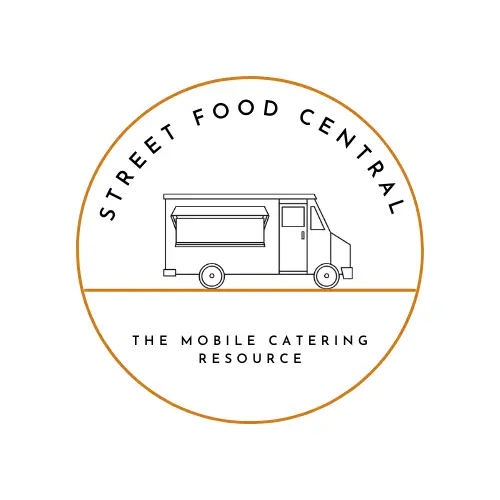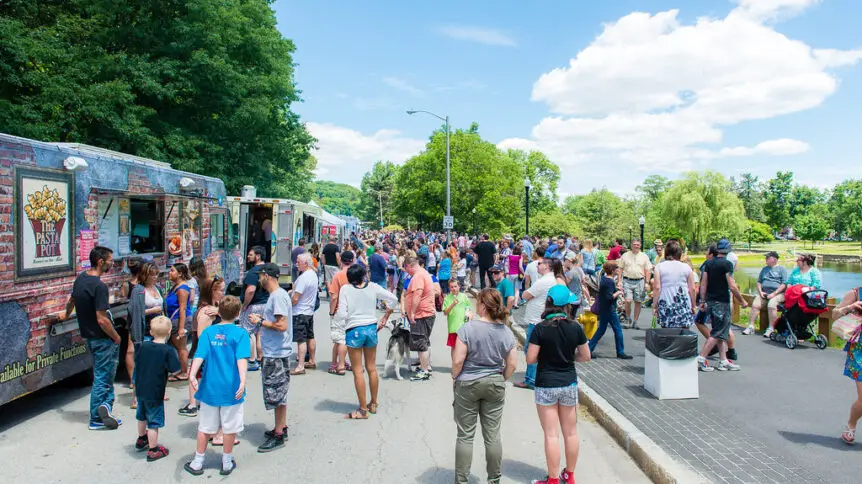From research to logistics, see these helpful tips to help you secure the best food vendors for your event

If you’re planning an event, like a wedding, birthday party, or corporate gathering, and you’re thinking of booking food vendors to provide your guests with a unique experience, there are quite a few things to consider to make sure things go smoothly.
To book food vendors for your event you need to know your audience and the timings of the events so you can choose the most appropriate food vendor for your needs. You also have to think about the logistics of how caterers with be able to gain access and what facilities there will be at the venue.
These are just a few of the steps in the planning process and there are other things you will need to do in order to book a food vendor for your event successfully.
Below are 11 steps that can help you plan for your next event and book food vendors.
Contents:
How to book food vendors for an event.
- Start early and do your research
- Know your audience
- Offer a variety of options
- Consider presentation & branding
- Check timings
- Check for permits and insurance
- Negotiate contracts and pricing
- Communicate clearly and often
- Plan for logistics
- Provide clear guidelines
- Follow up after the event
1. Start early and do your research
The food truck and mobile food vendor industry is massive so you shouldn’t have any trouble finding food vendors for your event.
You can use online resources such as Google, and social media platforms like Instagram and Facebook to find food truck vendors in your area. There are also a number of platforms that advertise food vendors including Add To Events and Roaming Hunger.
Once you have a list of potential vendors, visit their websites, platform profiles, and social media pages to learn more about their menus and services. Check for their availability and reach out to them as soon as possible to secure your preferred vendor. Keep in mind that some popular food trucks book up to a year in advance, especially during the summer.
2. Know your audience
Part of the research process when booking a food vendor for your event is considering the age range, preferences, and dietary restrictions of your guests. For example, if you’re hosting a family-friendly event, you might want to include food trucks that serve kid-friendly options like sourdough pizza, grilled cheese, ice cream, or smoothies.
If you have guests with dietary restrictions, such as gluten-free, vegan, or kosher, you might want to include food trucks that cater to those needs. For example, you can look for food trucks that serve gluten-free pizza, vegan burgers, or kosher-style hot dogs.
3. Offer a variety of options
To give your guests the best experience you also want to offer a variety of options that include both food truck favorites such as gourmet burgers, sourdough pizzas, and hotdogs and different cuisines from around the world, such as Mexican, Asian, Indian, and Mediterranean.
You may also want to include dessert and beverage trucks such as a juice bar, a doughnut truck, or other types of vendors to give your guests more choices.
Related articles:
- 19 Popular Food Truck Dessert Ideas
- 35 Food Truck Menu Ideas for 2023 (updated)
- 9 Healthy Food Truck Menu Ideas For 2023
- How Much to Hire a Food Truck: Costs, Tips & What to Consider
4. Consider presentation & branding
When planning your event, it’s important to think not just about the food but the overall experience your guests will have. Choosing food trucks that have good presentation and branding can help your event stand out and make people want to return the next time.
Check out their images on social media and their websites and ask for any pictures from previous events. Also, ask if they offer custom branding as this is a good way to promote your own brand during the event.
5. Check timings
You will also need to consider the timing of your event. For example, If it’s an all-day corporate event, that covers breakfast lunch, and dinner then you want to book food vendors that can provide this type of service.
For example, you may want a mobile coffee and juice bar, along with a grilled cheese sandwich food truck for breakfast and a food vendor that serves main meals for lunch and dinner.
6. Check for permits and insurance
Once you have picked the vendor you want to work with make sure they have all the necessary permits, such as a health permit, business license, and liability insurance.
For example, if you’re planning a food truck festival on private property, you might need to obtain a special events permit from the local government. Some food truck vendors might require additional permits, such as a permit to serve alcohol or operate a generator. This protects you as the event planner, your guests, and the vendors if anything goes wrong.
It’s worth noting that the types of permits traders need to operate at your event may differ depending on what state you are in so check your local government’s website.
Related articles:
- How To Organize Your Own Food Truck Event
- 12 Types of Vehicles Used for Food Trucks
- How Much Does A Food Truck Cost For A Wedding?
7. Negotiate contracts and pricing
Negotiating contracts and pricing is an important part of booking food truck vendors for your private event. Here are some key points to keep in mind when negotiating contracts and pricing:
- Minimum spend: Some food truck vendors may require a minimum spend, which means you must spend a certain amount of money to secure their services. Be sure to clarify what the minimum spend is and if it includes any additional fees or charges.
- Deposit: Some vendors may require a deposit to secure their services, and the deposit amount may vary from vendor to vendor. It’s important to understand the deposit policy, including the payment method and deadline for payment.
- Cancellation policy: Make sure you understand the vendor’s cancellation policy, including any fees or charges you may incur if you cancel or reschedule the event. Some vendors may have a more lenient policy if you cancel well in advance, while others may have strict policies that require full payment.
- Additional fees: Be sure to clarify if there are any additional fees or charges that are not included in the vendor’s base price, such as travel fees, equipment rental fees, or staffing fees.
- Payment terms: It’s important to clarify the payment terms, including the payment schedule, payment method, and any late payment fees. Some vendors may require payment in full before the event, while others may allow payment on the day of the event.
- Clarify what’s included: Make sure you understand what is included in the vendor’s package, such as the menu items, the number of staff, the setup and breakdown of the truck, and any additional services. This will help you avoid any surprises on the day of the event.
8. Communicate clearly and often
Once you have booked the food vendor it’s good practice to communicate clearly and often with them. Make sure to confirm the details of the event, such as the date, time, and location, and provide a clear map of the event site.
If there are any changes to the schedule or logistics, make sure to notify the vendors as soon as possible. For example, if the event changes from outside to inside due to adverse weather, or there will be different access routes into the venue you might want to let the food truck vendors know in advance so they can adjust their plans accordingly.
9. Plan for logistics
As you plan your event, make sure to consider the logistics of hosting food vendors where the event is actually going to be held.
You will need to coordinate with the food truck vendors and the event venue to ensure that there is enough space for them to set up and serve, parking for commercial vehicles, adequate power and water supply so vendors can cook food and provide a service, and trash bins and removal during and after the event.
10. Provide clear guidelines
When you work with food truck vendors, it’s important to provide clear guidelines for their participation in your event. This might include rules around marketing and promotion, payment and tipping, and health and safety.
For example, you might ask the vendors to include your event logo on their promotional materials, or you might specify that they cannot sell alcohol or tobacco products.
11. Follow up after the event
Finally, when your event has finished, it may be a good idea to contact the food vendors to thank them for their time and gather some feedback. This can help you build relationships with the vendors and improve your future events.
You might ask for their thoughts on the event logistics, the menu options, and the overall experience. You can also ask for any photos or social media posts they may have made to help promote your event.
Related questions:
How much is it to hire a food truck for an event?
On average, the cost of a food truck for a private event ranges from $500 up to $1500 and more. However, the total costs will depend on a number of other factors, which include the number of guests, the location and duration of the event, and the menu selection. In most cases, food trucks will also have a minimum spending requirement to make it viable for them to provide you with a service.
It’s worth noting that many food vendors are willing to work with you to create a customized package that fits within your budget and meets your event’s specific needs.
Gavin D is the founder of Street Food Central and Tru Foo Juice Bar Co. and has worked in the mobile catering industry for over 7 years.

